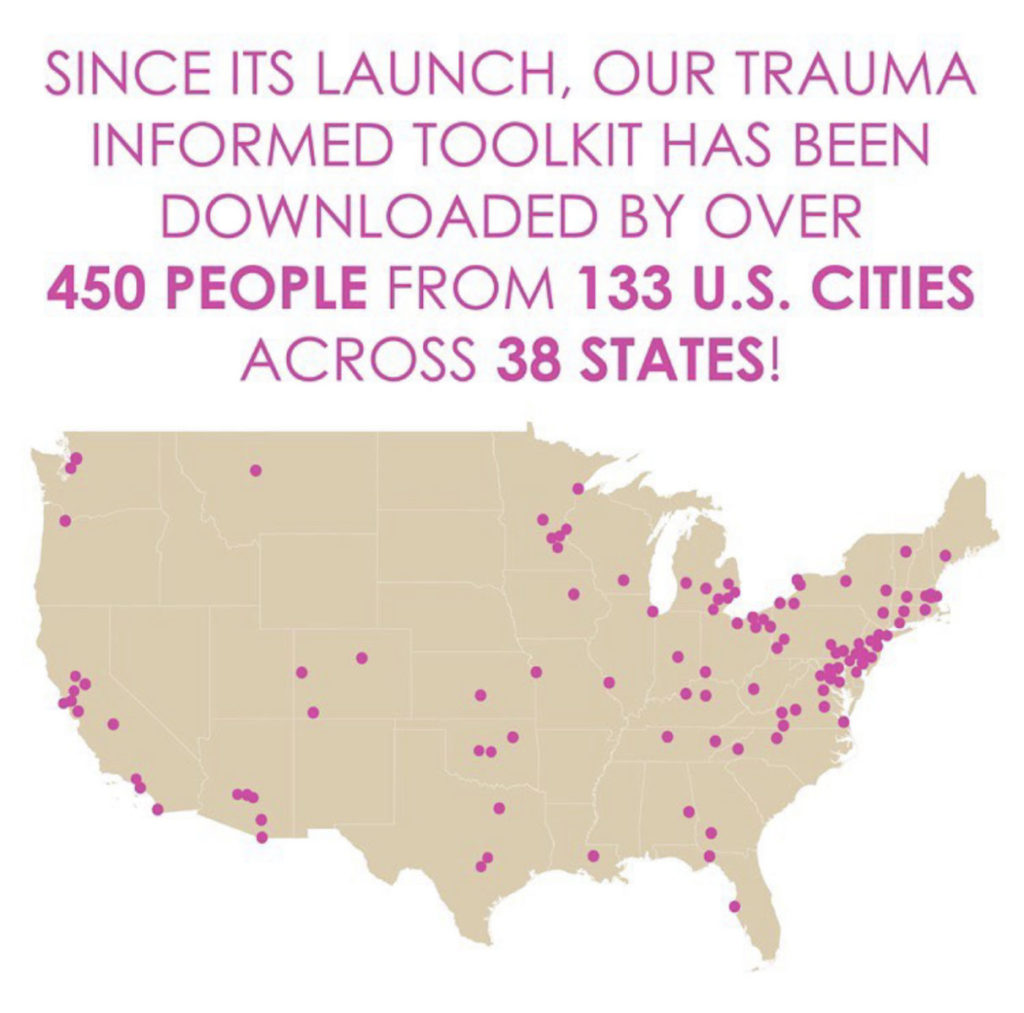What is trauma-informed?
Being trauma-informed means acknowledging the physical, mental, and environmental impact of traumatic experiences—things like poverty, racism, or the opioid epidemic—but not letting those experiences define the community or its residents. A trauma-informed approach promotes healing and recovery rather than practices that may inadvertently cause more harm.
Earlier this year, two Kensington-based community development corporations, Impact Services and NKCDC, launched Connected Community: A Trauma Informed Community Engagement Toolkit. The toolkit is a curriculum aimed at helping people understand the impact of trauma on individuals and communities, and helping community-based groups make their work more effective in neighborhoods that experience high levels of trauma.
Being trauma-informed means acknowledging the physical, mental, and environmental impact of traumatic experiences—things like poverty, racism, or the opioid epidemic—but not letting those experiences define the community or its residents. A trauma-informed approach promotes healing and recovery rather than practices that may inadvertently cause more harm.
“We are building on existing practices from Dr. Sandra Bloom and her colleagues, who understand that applying principles and practices related to the effects of trauma and stress cannot be relegated solely to clinical practice,” said Impact CEO Casey O’Donnell (PsyD). “They shaped how to integrate this knowledge into organizational systems. Everyone should have access to these practices.”

NKCDC and Impact Services have been building a collaborative of neighborhood organizations to apply trauma-informed principles to community development work in Kensington. We saw an opportunity to expand knowledge about trauma and trauma-informed practices to neighborhood blocks in Kensington, as well as to other community organizations in Philadelphia and across the nation.
- With the support of the Scattergood Foundation, LISC, and NeighborWorks America, Impact and NKCDC launched a three-year participatory process with residents to craft what has become the Connected Community curriculum and toolkit.
- Community residents Gloria Cartagena, Joan Dansette, Brenda Mosely, Neyda Rios, Maria Rivas, Mayme Robinson and Elmira Smith gave hundreds of hours of input over 15 months.
- Michael O’Bryan of the Village of Arts and Humanities led participatory workshops with the residents and created a document that reflected both community voices and the evidence-based research behind trauma-informed care.
- Rebecca Fabiano of Fab Youth Philly took that material and turned it into this train-the-trainer curriculum that is engaging and accessible enough for anyone to use.
Since March, the toolkit has been downloaded over 450 times by people across 38 states, as well as Australia, Brazil, Canada, Denmark, Ireland, New Zealand, and the U.K.
“We wanted to share the work because we saw how important it was to the community members who went through the curriculum,” said Zoë Van Orsdol, Co-Director of Community Development at Impact.
The curriculum is designed to foster connections among neighbors, bolster community resilience, and promote emotional intelligence. While teaching about trauma it builds the skills necessary for participants to lead workshops of their own. With this train-the-trainer model, the collaborative hopes to trauma-informed practices will be sustainable for communities.
NKCDC and Impact Services share a vision for Kensington to be a safe, healthy, and prosperous community where neighbors feel connected to one another, take shared responsibility for the neighborhood, feel empowered to make change in their environment, and envision a positive future for themselves and their children. “Success will be long lasting if a paradigm shift occurs that centers community members as the leaders in weaving trauma-informed care into as many efforts as possible within the community,” said Dr. Bill McKinney, Executive Director of NKCDC. “Community-led trauma informed work should be the new norm.”
Connected Community: A Trauma Informed Community Engagement Toolkit is free and accessible at traumainformedcommunity.org.
